Montessori Toys
Montessori Practical Life: Building Skills, Independence & Collaboration
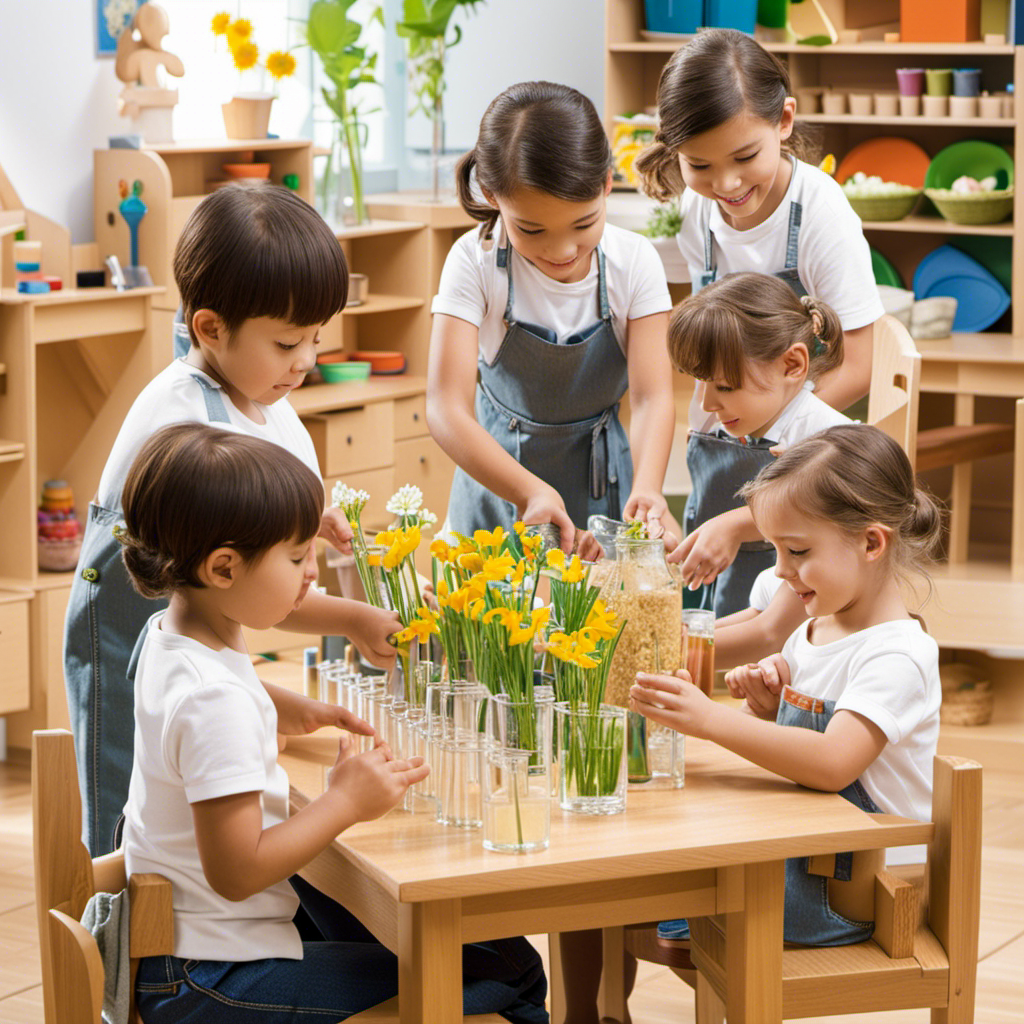
As a Montessori educator, I have observed the significant influence that practical life activities have on the development of young children. These activities not only help children acquire essential skills but also promote independence and collaboration among them.
From food preparation to self-grooming, these hands-on tasks teach healthy habits and promote self-sufficiency. Child-sized cleaning materials encourage responsibility and confidence, while grace and courtesy activities develop social skills and manners.
By engaging in group work and role-playing, children learn to collaborate and respect others. Practical life truly lays the foundation for a well-rounded education.
Key Takeaways
- Practical life exercises in Montessori education help develop fine motor skills, concentration, and independence.
- These exercises enhance hand-eye coordination, refine skills through pouring and transferring objects, and strengthen hand muscles.
- They also promote social skills and collaboration by fostering teamwork, turn-taking, and sharing, as well as encouraging empathy and respect for others.
- Practical life exercises lay the foundation for academic skills, develop a sense of responsibility and self-sufficiency, and promote confidence and a positive attitude towards life.
The Importance of Practical Life Exercises in Montessori Education
I believe that practical life exercises play a crucial role in Montessori education because they help develop important skills, foster independence, and promote collaboration among students.
These exercises are designed to provide children with real-life experiences that allow them to develop fine motor skills, enhance concentration, and build a foundation for basic skills. Through activities such as food prep and self-grooming, children learn healthy eating habits, develop independence, and foster a love for cooking.
The use of child-sized cleaning materials promotes independence, improves hand-eye coordination, and enhances fine motor skills. Additionally, practical life exercises like group work and role-playing teach social skills, empathy, and a sense of community. Collaborating in small groups allows children to solve problems and complete tasks together, promoting social interaction and cooperation.
Overall, practical life exercises in Montessori education contribute to confident, independent, and socially engaged individuals.
Enhancing Fine Motor Skills Through Practical Life Activities
Enhancing fine motor skills through practical life activities has been a rewarding experience for me. I have observed the incredible growth and development in children as they engage in these activities. Here are a few reasons why these activities are so beneficial:
-
Improved hand-eye coordination: From pouring and transferring materials to using scissors and tweezers, children refine their fine motor skills and learn to control their movements with precision.
-
Increased concentration: The focus required to complete tasks like lacing, threading, and buttoning helps children develop their ability to concentrate and pay attention to details.
-
Boost in confidence: As children master these skills, they gain a sense of accomplishment and become more confident in their abilities.
-
Preparation for academic learning: Practical life activities lay the foundation for future academic skills, such as writing, reading, and math, by strengthening hand muscles and developing coordination.
Through these activities, children not only enhance their fine motor skills but also develop important life skills that will serve them well in the future. It is truly a joy to witness their progress and growth.
Building Concentration Through Montessori Practical Life Exercises
Developing concentration is a key benefit of engaging children in practical life exercises. As a Montessori teacher, I have observed how these activities help children focus their attention and improve their ability to concentrate. The table below highlights some practical life exercises that promote concentration:
| Practical Life Exercise | Benefits of Exercise |
|---|---|
| Pouring water into cups | Enhances hand-eye coordination and focus |
| Transferring objects with tongs | Improves fine motor skills and concentration |
| Sorting objects by color or size | Develops visual discrimination and attention to detail |
The Foundation of Basic Skills: Montessori Practical Life Curriculum
The foundation of basic skills in the Montessori practical life curriculum is crucial for children’s overall development and success.
As a Montessori teacher, I have observed firsthand the profound impact these activities have on children’s growth.
Through practical life exercises, children acquire essential skills that lay the groundwork for their future learning and independence.
From pouring and spooning activities that develop fine motor skills to buttoning and zipping exercises that enhance concentration, every task serves a purpose.
As children engage in these activities, they become more confident in their abilities and develop a sense of accomplishment.
The Montessori practical life curriculum not only teaches children how to perform everyday tasks but also instills in them a sense of responsibility, self-sufficiency, and collaboration.
It is truly remarkable to witness the transformation of children into confident, capable individuals who are well-prepared for life’s challenges.
Nurturing Independence in Montessori Practical Life Lessons
As a Montessori teacher, I have witnessed the remarkable growth in children’s confidence and abilities through the nurturing of independence in practical life lessons. By allowing children to engage in real-life activities and tasks, they develop a sense of responsibility and self-sufficiency. This fosters their independence and promotes a confident attitude towards life.
Through activities such as food prep and self-grooming, children learn healthy eating habits, develop fine motor skills, and gain a sense of accomplishment. The use of child-sized cleaning materials in the care of the environment exercises enhances hand-eye coordination and improves fine motor skills. Moreover, engaging in group work and role-playing activities teaches children social skills, empathy, and cooperation.
The table below highlights the benefits of nurturing independence in Montessori practical life lessons:
| Benefits | Practical Life Lessons |
|---|---|
| Develops responsibility | Food prep and self-grooming |
| Enhances fine motor skills | Care of the environment |
| Builds confidence and self-sufficiency | Grace and courtesy |
Promoting Social Skills and Collaboration in Practical Life Activities
By promoting social skills and collaboration, I witness the positive impact it has on children’s ability to work together and communicate effectively.
When children engage in practical life activities that require them to collaborate and interact with their peers, they develop important social skills that will benefit them throughout their lives.
I have observed that through these activities, children learn to take turns, share materials, and listen to others’ ideas. This fosters a sense of teamwork and cooperation, as well as empathy and respect for others.
Additionally, collaboration allows children to learn from one another and build upon each other’s strengths.
It is truly remarkable to see how these practical life exercises not only enhance their independence and skills but also nurture their ability to connect and work harmoniously with others.
Exploring Preliminary Practical Life Activities in Montessori Classrooms
In my experience as a Montessori educator, I have observed the importance of preliminary practical life activities in our classrooms. These activities lay the foundation for the development of essential skills and independence in young children.
Care of self is a key aspect, where we engage children in food preparation and self-grooming. Through these activities, we teach them healthy eating habits, foster a love for cooking, and promote responsibility and self-sufficiency.
Additionally, care of the environment involves providing child-sized cleaning materials, which encourage independence, improve hand-eye coordination, and develop fine motor skills.
Lastly, grace and courtesy activities, such as group work and role-playing, allow children to learn social skills, empathy, and a sense of community. Working together in small groups not only encourages social interaction and cooperation but also helps them solve problems and complete tasks collaboratively.
These preliminary practical life activities truly lay the groundwork for confident, independent, and collaborative members of society.
Engaging Children in Food Prep: Teaching Healthy Eating Habits
Teaching healthy eating habits to children in food prep engages them and fosters a love for cooking. As a Montessori educator, I have witnessed the positive impact of involving children in preparing their own meals. It not only teaches them about nutrition but also empowers them to make healthier food choices.
By actively participating in meal preparation, children develop a sense of ownership over their food, which encourages them to try new ingredients and flavors. It is a wonderful opportunity to introduce them to a variety of fruits, vegetables, and whole grains. I have observed how children become more adventurous eaters when they are involved in the cooking process. They develop a genuine curiosity about different foods and are more willing to try new things.
Additionally, teaching children about healthy eating habits at a young age sets them up for a lifetime of making informed food choices and promotes a healthy relationship with food.
Fostering a Love for Cooking in Montessori Practical Life Lessons
Engaging children in food prep fosters a love for cooking and allows them to develop a deep appreciation for the culinary arts.
As a Montessori teacher, I have observed firsthand the joy and excitement that children experience when they are given the opportunity to be involved in the kitchen. It is truly remarkable to see their faces light up as they chop vegetables, measure ingredients, and mix batters.
Through these experiences, they not only learn valuable practical skills, but they also develop a sense of pride and accomplishment. They begin to understand the importance of healthy eating and the magic of transforming simple ingredients into delicious meals.
Cooking becomes a creative outlet for them, a way to express themselves and explore new flavors. By fostering a love for cooking, we are nurturing a lifelong passion for the culinary arts.
Developing Independence and Self-Care Skills Through Practical Life
In my experience as a Montessori educator, I have witnessed the incredible impact of practical life activities on children’s development. Transitioning from fostering a love for cooking, the next crucial aspect of practical life is developing independence and self-care skills. These activities not only teach children how to take care of themselves but also instill a sense of responsibility and self-sufficiency.
To give you a glimpse of the practical life exercises that promote independence and self-care, take a look at the table below:
| Practical Life Activity | Benefits |
|---|---|
| Dressing oneself | Develops fine motor skills and coordination |
| Brushing teeth | Encourages self-care and hygiene |
| Buttoning and zipping | Enhances fine motor skills and independence |
| Pouring and serving drinks | Teaches responsibility and coordination |
| Organizing personal items | Fosters a sense of order and ownership |
Engaging in these activities not only enhances children’s confidence and sense of accomplishment but also equips them with essential skills for daily life. It is truly remarkable to witness how these practical life exercises empower children to become independent and capable individuals.
Promoting Responsibility and Self-Sufficiency in Montessori Practical Life
Developing responsibility and self-sufficiency through practical life activities has been a transformative experience for me as a Montessori educator. It is remarkable to witness the growth and independence of the children as they engage in meaningful tasks.
Encouraging them to take ownership of their actions and responsibilities has a profound impact on their development. Through activities such as organizing their materials, taking care of plants, and contributing to the classroom community, children develop a sense of responsibility and pride in their work. They learn to problem-solve, make choices, and take initiative.
It is a joy to observe their confidence and self-sufficiency blossom as they navigate through these practical life exercises. By fostering these skills, we are nurturing capable and empowered individuals who are prepared to succeed in all aspects of life.
Child-Sized Cleaning Materials: Encouraging Independence and Confidence
Now that we have discussed promoting responsibility and self-sufficiency in Montessori practical life, let’s shift our focus to another important aspect: child-sized cleaning materials.
As a Montessori educator, I have observed the immense impact these materials have on encouraging independence and confidence in young children.
By providing children with cleaning tools that are specifically designed for their size, we empower them to take ownership of their environment. They learn to tidy up after themselves and develop a sense of responsibility towards their surroundings. Through the use of mops, brooms, and dustpans that fit their small hands, children improve their hand-eye coordination and fine motor skills.
What I find truly remarkable is that while engaging in cleaning activities, children have fun and gain a sense of accomplishment. They learn to grasp and manipulate objects with ease, enhancing their overall dexterity. Moreover, as they clean together in a Montessori classroom, they develop social skills, cooperation, and a sense of community. By working collaboratively, they solve problems and complete tasks, fostering a supportive and inclusive environment.
Improving Hand-Eye Coordination Through Montessori Cleaning Activities
I’ve noticed that through Montessori cleaning activities, children’s hand-eye coordination improves significantly.
As a Montessori teacher, I have observed firsthand how engaging children in tasks like sweeping, dusting, and mopping not only helps them develop a sense of responsibility and independence but also enhances their fine motor skills.
It’s fascinating to see how they carefully maneuver the broom or mop, coordinating their hand movements with their visual perception of the dirt or dust on the floor.
The repetitive actions involved in cleaning tasks also help children develop their concentration and focus. They learn to pay attention to detail as they wipe down surfaces or pick up small objects.
Through these practical life exercises, children are not only learning important life skills but also improving their hand-eye coordination in a patient and observant manner.
Engaging in Grace and Courtesy: Learning Social Skills and Manners
Engaging in grace and courtesy activities has allowed me to witness the growth of children’s social skills and manners. It is truly remarkable to see how these simple exercises can have such a profound impact on their development.
Here are three ways in which engaging in grace and courtesy activities benefits children:
-
Increased empathy and understanding: By practicing polite greetings, saying please and thank you, and taking turns, children learn to consider the feelings and needs of others. This helps them develop empathy and a sense of community.
-
Improved communication skills: Through role-playing and group work, children learn how to effectively communicate their thoughts and feelings. They also learn to listen attentively to others, fostering better communication and collaboration.
-
Enhanced problem-solving abilities: Grace and courtesy activities often involve working together to solve problems and complete tasks. This helps children develop problem-solving skills, critical thinking, and the ability to work cooperatively with others.
Through engaging in these activities, children not only acquire essential social skills and manners but also become confident, empathetic, and respectful members of society.
Group Work and Collaboration in Montessori Practical Life Education
Working together in small groups and collaborating on various projects has proven to be an effective way for children to develop important social and problem-solving abilities. As a Montessori educator, I have observed how group work in practical life exercises fosters a sense of community and promotes collaboration.
When children work together on tasks such as food preparation or cleaning, they learn to communicate, share responsibilities, and solve problems collectively. Through these experiences, they develop empathy and understanding for others, as well as the ability to compromise and negotiate. I have witnessed the growth of their social skills and their confidence in working with others.
Group work in Montessori practical life education not only builds crucial life skills but also cultivates a sense of belonging and camaraderie among the children.
Frequently Asked Questions
How Do Montessori Practical Life Exercises Enhance Fine Motor Skills?
Montessori practical life exercises enhance fine motor skills by providing opportunities for children to engage in activities that require precise hand movements and coordination. Through tasks such as pouring, transferring, and manipulating small objects, children develop their hand-eye coordination, dexterity, and control over their movements.
These exercises also help strengthen the muscles in their hands and fingers, which are essential for activities such as writing and drawing. Overall, Montessori practical life activities play a crucial role in developing and refining fine motor skills in young children.
What Is the Importance of the Montessori Practical Life Curriculum in Building Basic Skills?
The Montessori practical life curriculum is incredibly important in building basic skills. It lays the foundation for essential abilities like fine motor skills, concentration, and independence.
By engaging in activities such as food prep and self-grooming, children develop valuable life skills and a sense of responsibility. The use of child-sized cleaning materials promotes independence and improves hand-eye coordination.
Through group work and role-playing, children learn social skills and develop a sense of community. Overall, the practical life curriculum fosters confidence, collaboration, and a strong sense of accomplishment.
How Do Montessori Practical Life Lessons Promote Responsibility and Self-Sufficiency?
Montessori practical life lessons promote responsibility and self-sufficiency. They provide children with the opportunity to engage in activities that develop independence and self-care skills. Through tasks like food prep and self-grooming, children learn to take care of themselves and develop a sense of responsibility for their own well-being.
How Do Child-Sized Cleaning Materials Encourage Independence and Confidence in Children?
Child-sized cleaning materials are like tiny tools in the hands of eager learners, empowering them to take charge of their surroundings. By using these materials, children develop a sense of independence and confidence as they take responsibility for their environment.
The small size of the tools allows for easier manipulation, improving hand-eye coordination and fine motor skills. Through this practical experience, children gain a sense of accomplishment and the belief in their ability to contribute to their community.
What Is the Role of Group Work and Collaboration in Montessori Practical Life Education?
Group work and collaboration play a vital role in Montessori practical life education. Working together in small groups allows children to develop important social skills, such as empathy, communication, and cooperation.
It fosters a sense of community and teaches them the value of working as a team to solve problems and complete tasks. Through collaboration, children learn to respect and appreciate the contributions of others, while also developing their own ideas and perspectives.
This prepares them to become confident, engaged members of society.
Avery brings the magic of words to life at Toddler Ride On Toys. As a dedicated writer, she combines her love for writing with her fascination for child development to craft articles that resonate with our audience. With a background in journalism and a knack for storytelling, Avery’s pieces inform, engage, and inspire parents and caregivers.
Montessori Toys
3 Best Safe Non-Toxic Materials for Children’s Toys

Our research has identified the top three materials for children’s toys that are safe and free from toxins.
Wood, organic cotton, and BPA-free plastic are the best choices for parents who want to ensure the safety of their little ones.
These materials are not only free from harmful chemicals, but they are also durable and eco-friendly.
In this article, we will delve into the benefits of each material and provide recommendations for the best toys made from them.
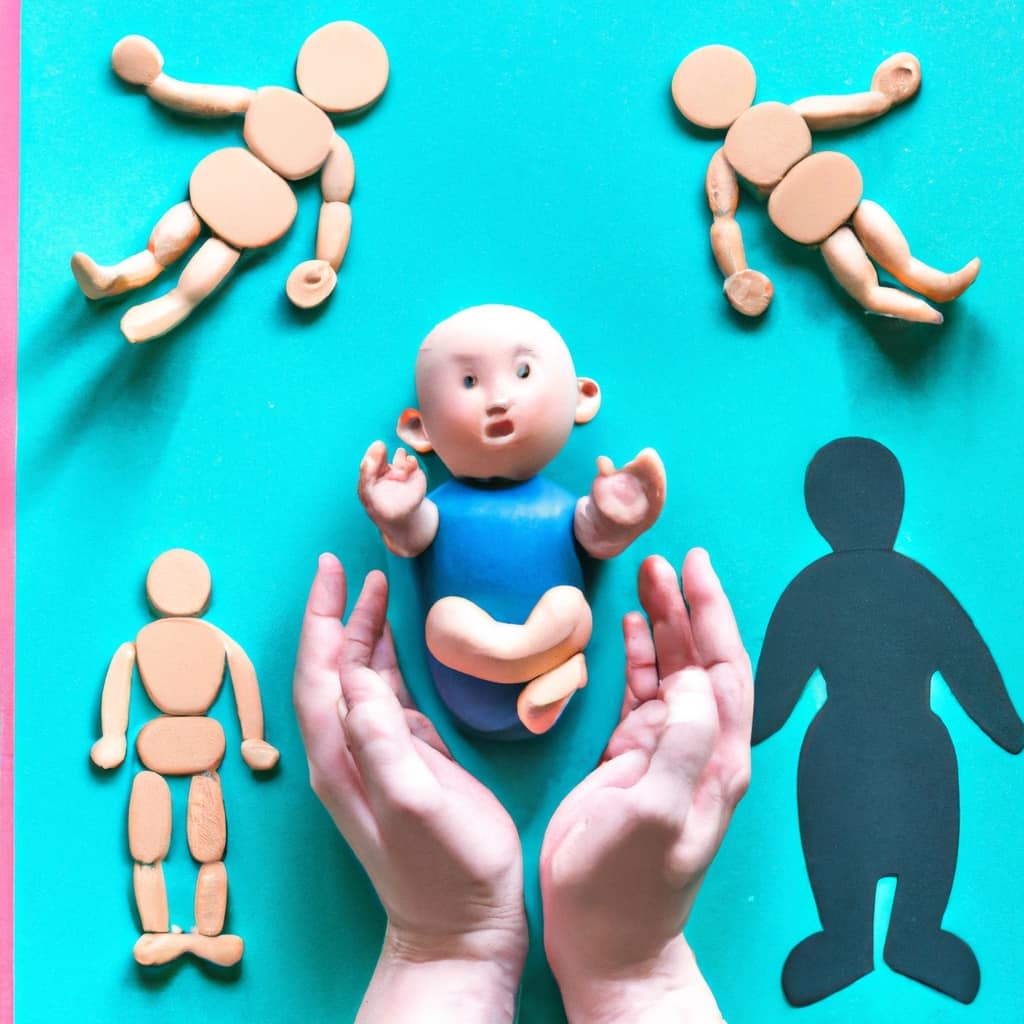
Key Takeaways
- Wood is a durable and long-lasting material, making it a safe and non-toxic option for children’s toys.
- Organic cotton is a gentle and hypoallergenic material that promotes a healthier environment and supports fair trade practices.
- BPA-free plastic eliminates the risk of exposure to harmful chemicals and provides peace of mind for parents.
- Toys made from wood and organic cotton have a long lifespan and can be passed down to future generations, making them a sustainable and eco-friendly choice.
Wood
Wood is one of our favorite materials for children’s toys due to its durability and natural beauty. Wooden puzzles and wooden building blocks are classic toys that provide endless hours of entertainment and educational value for children.
Wooden puzzles aren’t only fun to play with, but they also help develop problem-solving and fine motor skills. They come in various shapes and sizes, catering to different age groups.
Wooden building blocks, on the other hand, encourage creativity and imagination. Children can build structures, towers, and even create their own mini worlds using these blocks.
Wood is a safe and non-toxic material, making it ideal for children’s toys. Its sturdy nature ensures that these toys can withstand rough play and last for years, making them a great investment for both parents and caregivers.
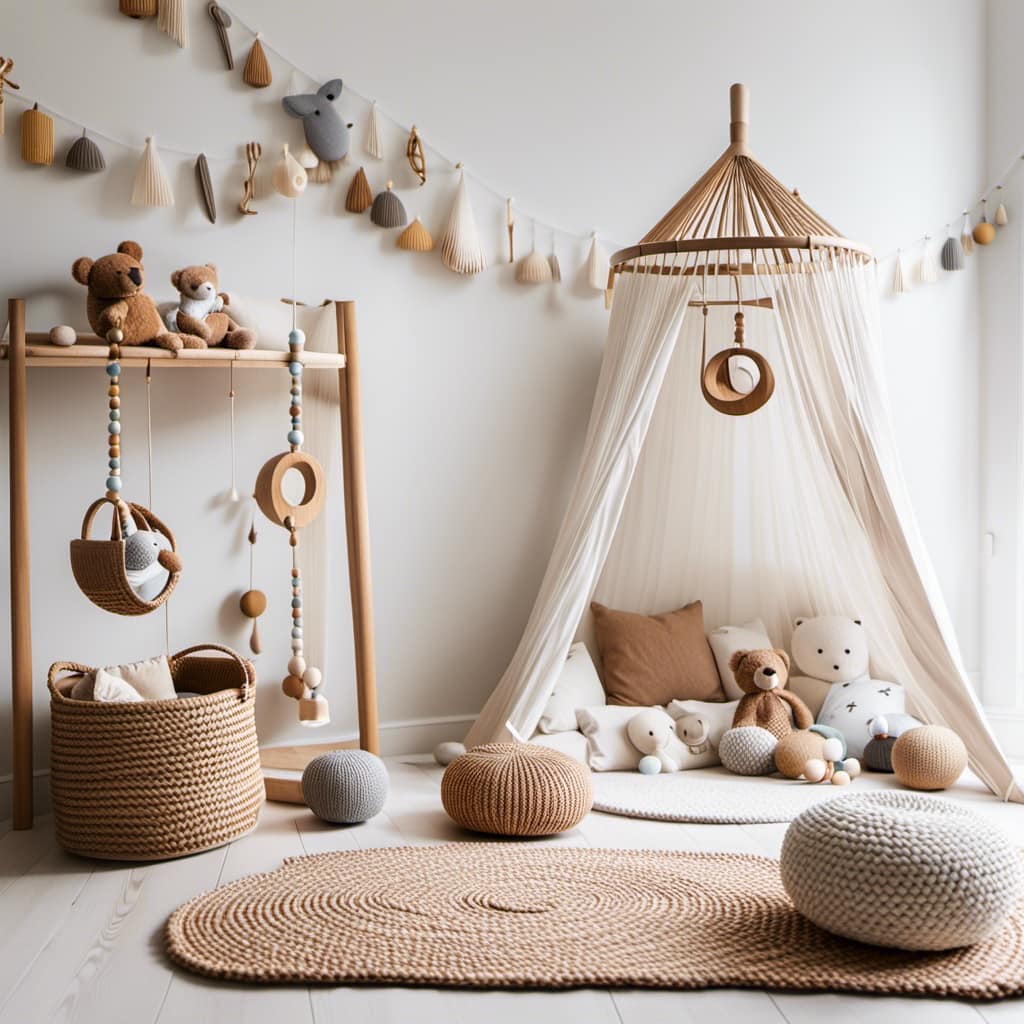
Organic Cotton
Moving on from wood, another excellent safe and non-toxic material for children’s toys is organic cotton. Organic cotton toys offer several benefits for both children and the environment. Here are some key points to consider:
- Chemical-free: Organic cotton is grown without the use of harmful pesticides or synthetic fertilizers, making it a safer option for children to play with.
- Hypoallergenic: Organic cotton is gentle on sensitive skin, making it suitable for children with allergies or sensitivities.
- Sustainable: Organic cotton farming practices promote soil health and biodiversity, reducing the overall impact on the environment.
The impact of organic cotton farming on the environment is significant. By avoiding the use of harmful chemicals, it helps preserve soil quality, reduces water pollution, and protects wildlife. Additionally, organic cotton production supports fair trade practices and ensures a safer working environment for farmers.
Choosing organic cotton toys not only promotes child safety but also contributes to a healthier planet for future generations.
BPA-Free Plastic
One option to consider for safe and non-toxic children’s toys is BPA-free plastic. BPA, or bisphenol A, is a chemical commonly found in plastic products that has been linked to various health risks, especially in children. BPA can leach out of plastic toys and enter the body when children put them in their mouths or handle them extensively.
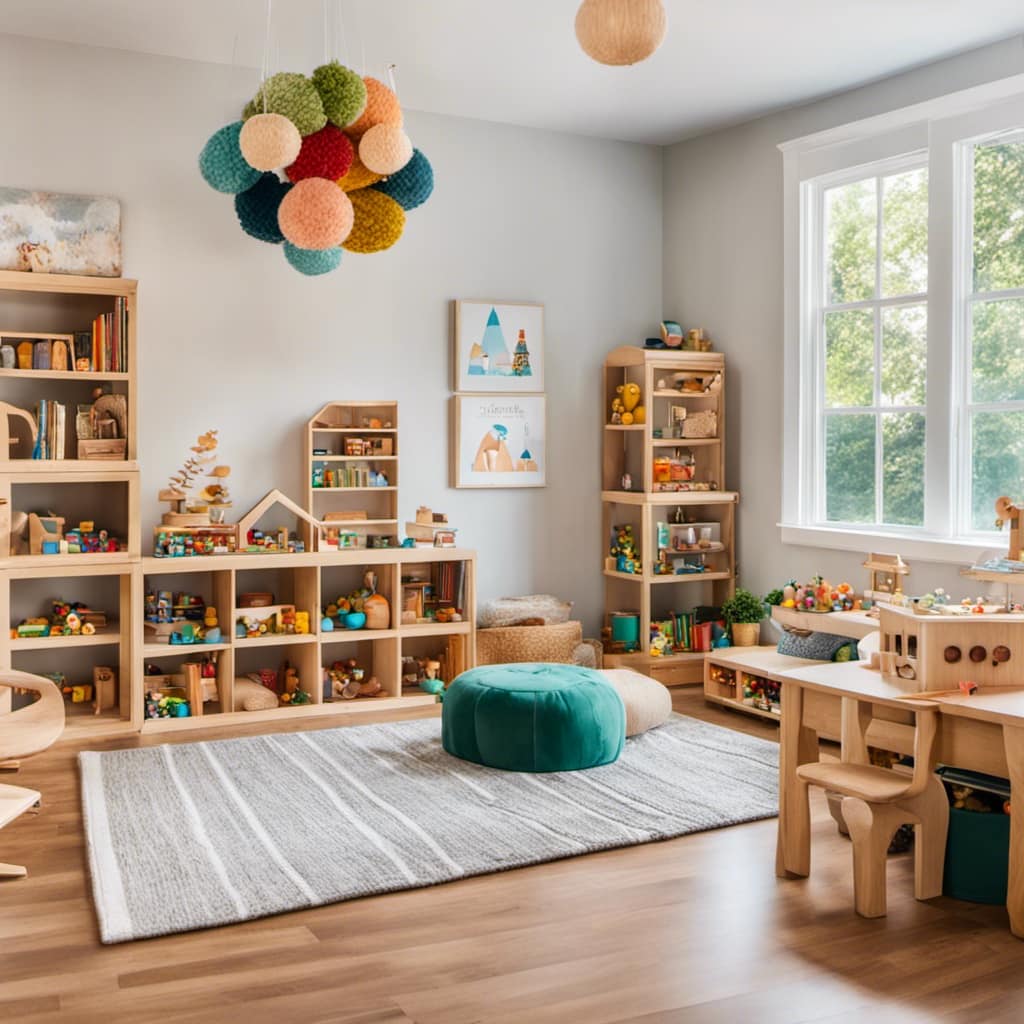
To address these concerns, manufacturers have started producing toys made from BPA-free plastic, which eliminates the risk of exposure to this harmful chemical. These eco-friendly alternatives provide parents with peace of mind, knowing that their children can play with toys that are safe and non-toxic.
When choosing children’s toys, it’s important to prioritize their health and well-being by opting for BPA-free plastic options.
Frequently Asked Questions
Are There Any Specific Safety Standards or Certifications That Parents Should Look for When Purchasing Wooden Toys for Their Children?
When purchasing wooden toys for our children, it’s important to look for safety standards and certifications. Reading labels helps ensure non-toxic materials. Be cautious of toxic finishes or paints that pose potential risks.
Is Organic Cotton Used as a Stuffing Material in Plush Toys Completely Free of Chemicals and Pesticides?
Organic cotton toys: Are they truly chemical free and safe? We’ve got the scoop. Choosing organic cotton for your little ones means you’re opting for a safer, non-toxic playtime experience.
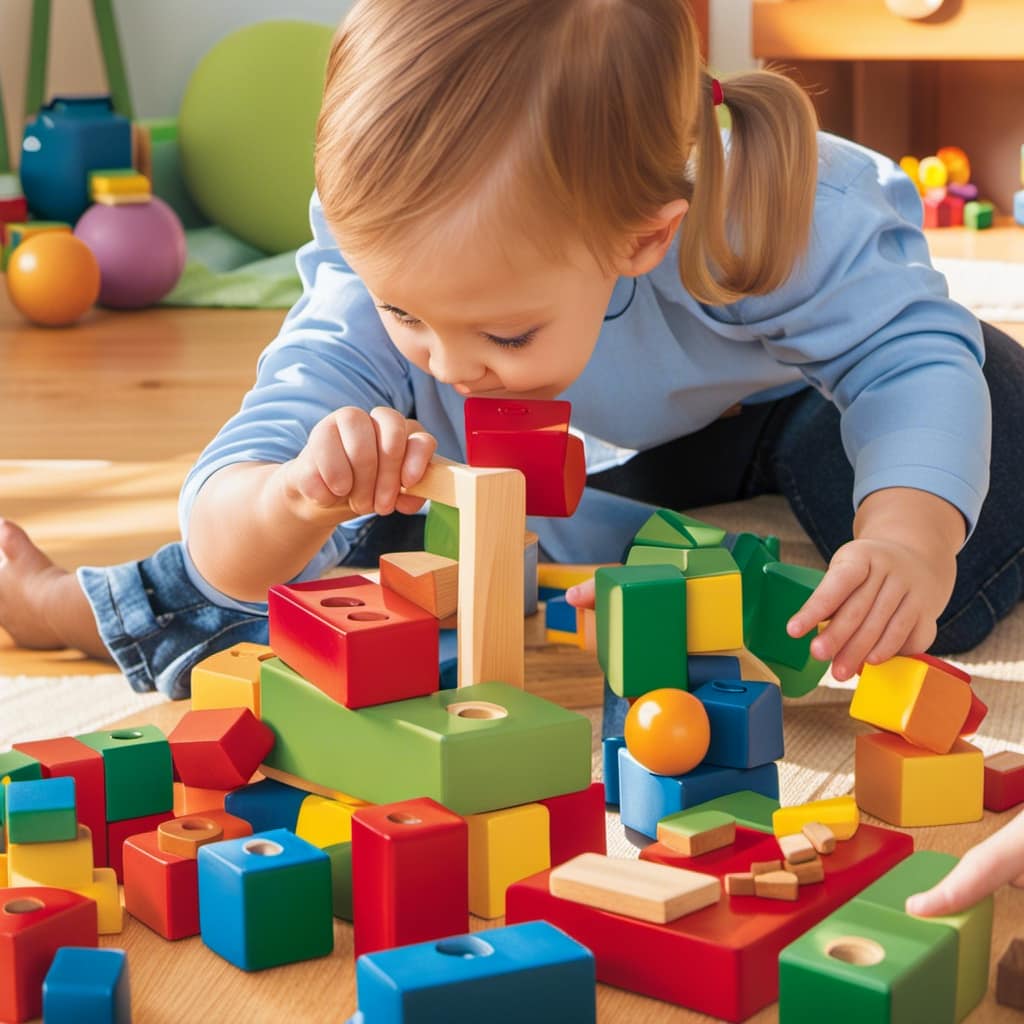
Can Bpa-Free Plastic Toys Still Contain Other Potentially Harmful Chemicals?
Yes, BPA-free plastic toys may still contain other potentially harmful chemicals. To minimize concerns about chemical exposure, consider alternative materials for children’s toys, such as wooden or organic cotton options, which are eco-friendly.
How Can Parents Ensure That the Wooden Toys They Purchase Are Not Treated With Toxic Finishes or Paints?
Parents play a vital role in promoting safe play for their children. Understanding the importance of non-toxic toys is crucial. To ensure wooden toys are safe, research brands that prioritize natural, non-toxic finishes and paints.
Are There Any Potential Health Risks Associated With the Use of Organic Cotton Toys, Such as Allergies or Sensitivities?
There may be potential health risks associated with organic cotton toys, such as allergies or sensitivities. It’s important for parents to be aware and consider any potential reactions when choosing toys for their children.
Conclusion
In conclusion, when it comes to choosing safe and non-toxic materials for children’s toys, nothing beats the timeless charm of wood. Its durability and natural beauty make it a perfect choice for little ones.

Additionally, organic cotton provides a soft and chemical-free option for cuddly toys.
And let’s not forget about BPA-free plastic, which offers a safe and sturdy alternative for certain toys.
With these top three materials, you can ensure that your child’s toys are both fun and safe.
Mila, a gifted writer with a heart brimming with enthusiasm for child development and playful learning, is the creative force behind the enchanting narratives and insightful articles that grace Toddler Ride On Toys. With a background in early childhood education and a genuine passion for nurturing young minds, Mila weaves words that captivate, educate, and inspire parents, caregivers, and educators.
Montessori Toys
Top 5 Quality Producers of Learning Toys

We have searched the market to bring you the top educational toy manufacturers. These five companies excel in creating toys that are educational and engaging for children.
Melissa & Doug, PlanToys, Hape, Grimm’s, and Learning Resources have all earned their spots on our prestigious list. Get ready to discover the finest quality toys that will inspire learning and imagination in your little ones.
Let’s dive into the world of these outstanding producers and explore their exceptional creations.
Key Takeaways
- Melissa & Doug, PlanToys, Hape, Grimm’s, and Learning Resources are the top producers of learning toys.
- These brands prioritize sustainability, using organic materials, non-toxic dyes, and child-safe finishes.
- The learning toys offered by these brands stimulate cognitive, physical, and social skills, as well as creativity and problem-solving abilities.
- Incorporating learning resources in early childhood education enhances problem-solving skills, critical thinking abilities, effective communication, creativity, and independent exploration.
Melissa & Doug
The article discusses the quality of learning toys produced by Melissa & Doug. Melissa & Doug is a renowned brand that offers a wide range of learning toys for early childhood development. These toys provide numerous benefits for children’s learning and development.
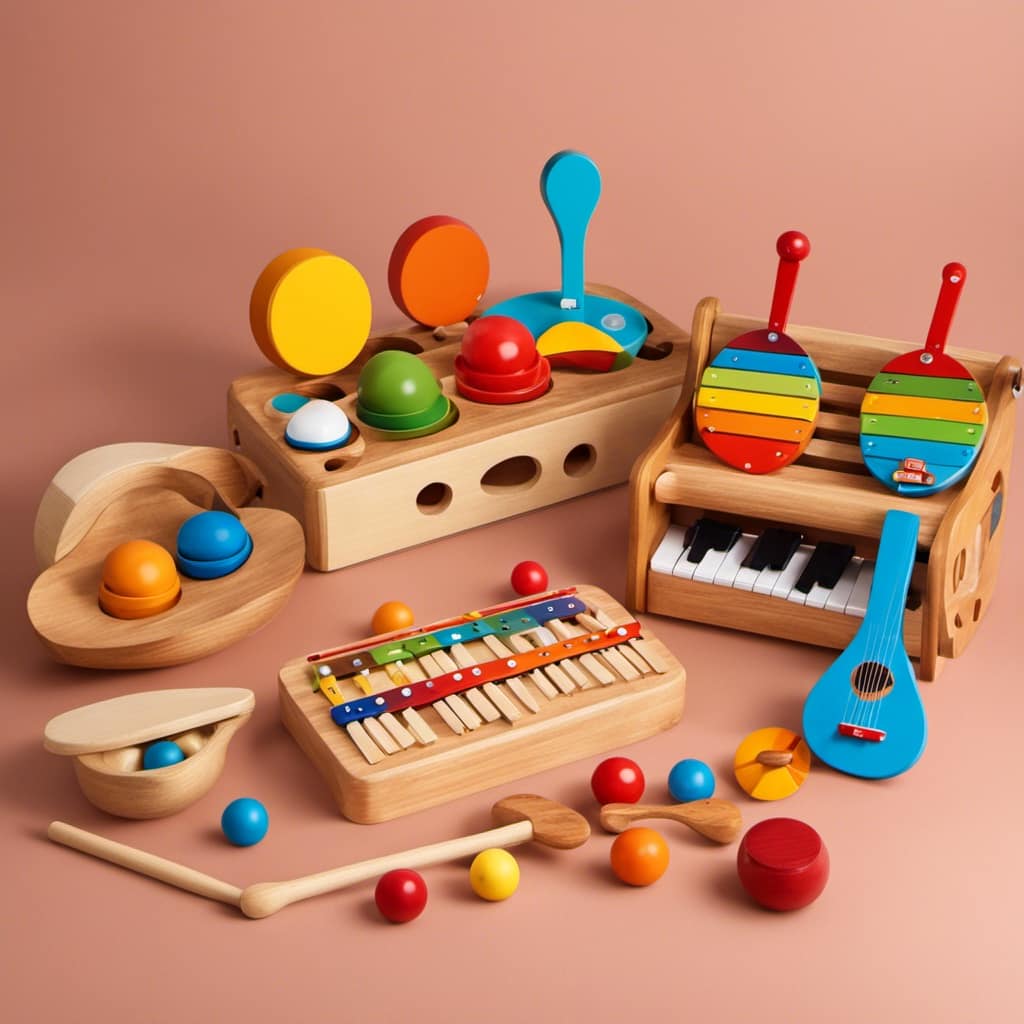
One of the key advantages of Melissa & Doug learning toys is their ability to promote imaginative play. Through imaginative play, children can explore their creativity, problem-solving skills, and social interactions. These toys encourage children to use their imagination, which is crucial for their cognitive and emotional growth.
Melissa & Doug toys are designed to engage children in hands-on activities, allowing them to learn through exploration and play. Transitioning into the subsequent section about plantoys, it’s important to consider the different approaches and features offered by various toy producers.
PlanToys
Introducing PlanToys, a leading producer of learning toys that prioritize sustainability and child development. PlanToys is known for their eco-friendly toys and sustainable play options, making them a top choice for environmentally conscious parents.
PlanToys takes pride in their commitment to using organic materials and non-toxic dyes in their products. They also prioritize sustainable manufacturing practices, ensuring that their toys are made in an environmentally friendly manner.
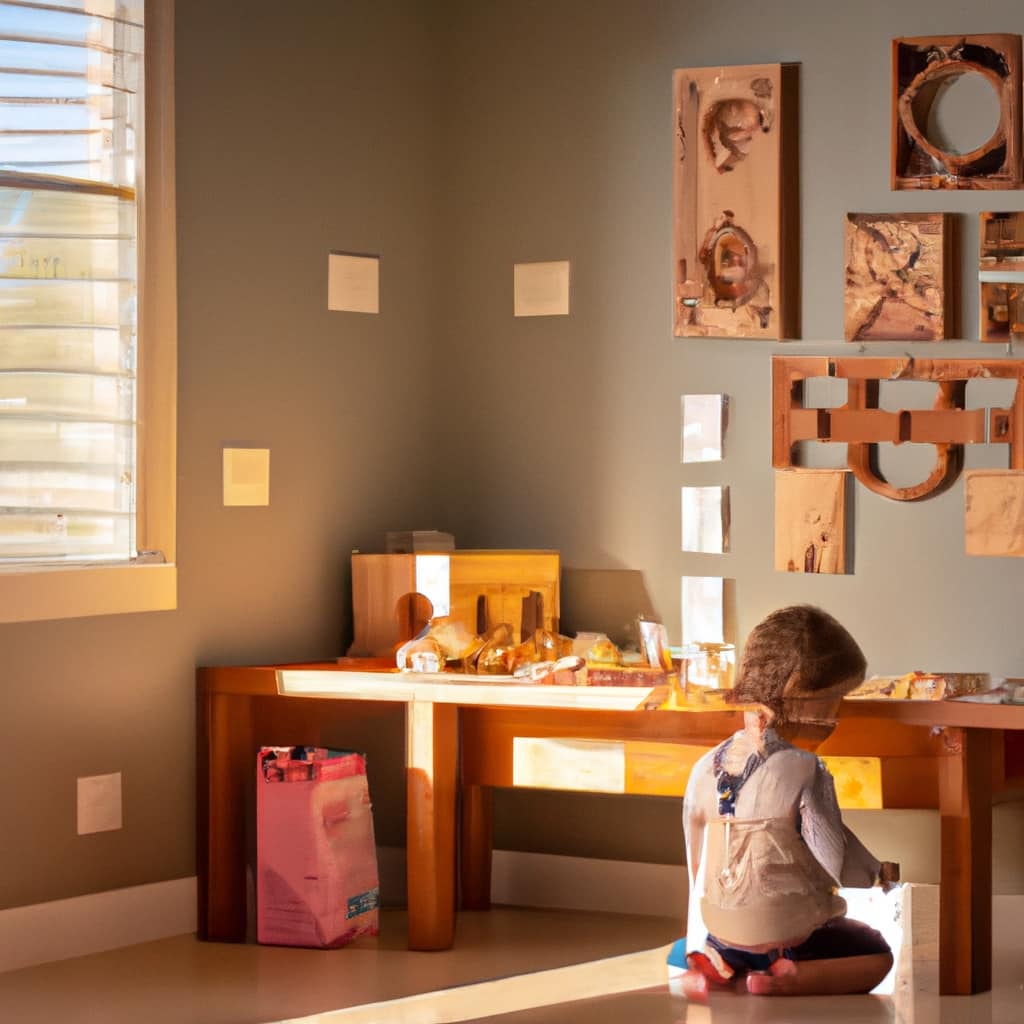
One of the key features of PlanToys is their focus on child development. Their toys are designed to stimulate different aspects of a child’s growth, including cognitive, physical, and social skills. From building blocks to puzzles, PlanToys offers a wide range of options that encourage creativity, problem-solving, and imagination.
With their dedication to sustainability and child development, PlanToys is a brand that not only provides high-quality learning toys, but also contributes to a better future for our planet.
Hape
Continuing our exploration of top quality producers of learning toys, let’s now turn our attention to Hape, a brand that shares a similar commitment to sustainability and child development.
Hape is known for their innovative learning toys that engage children in interactive play while promoting their cognitive, physical, and social development.
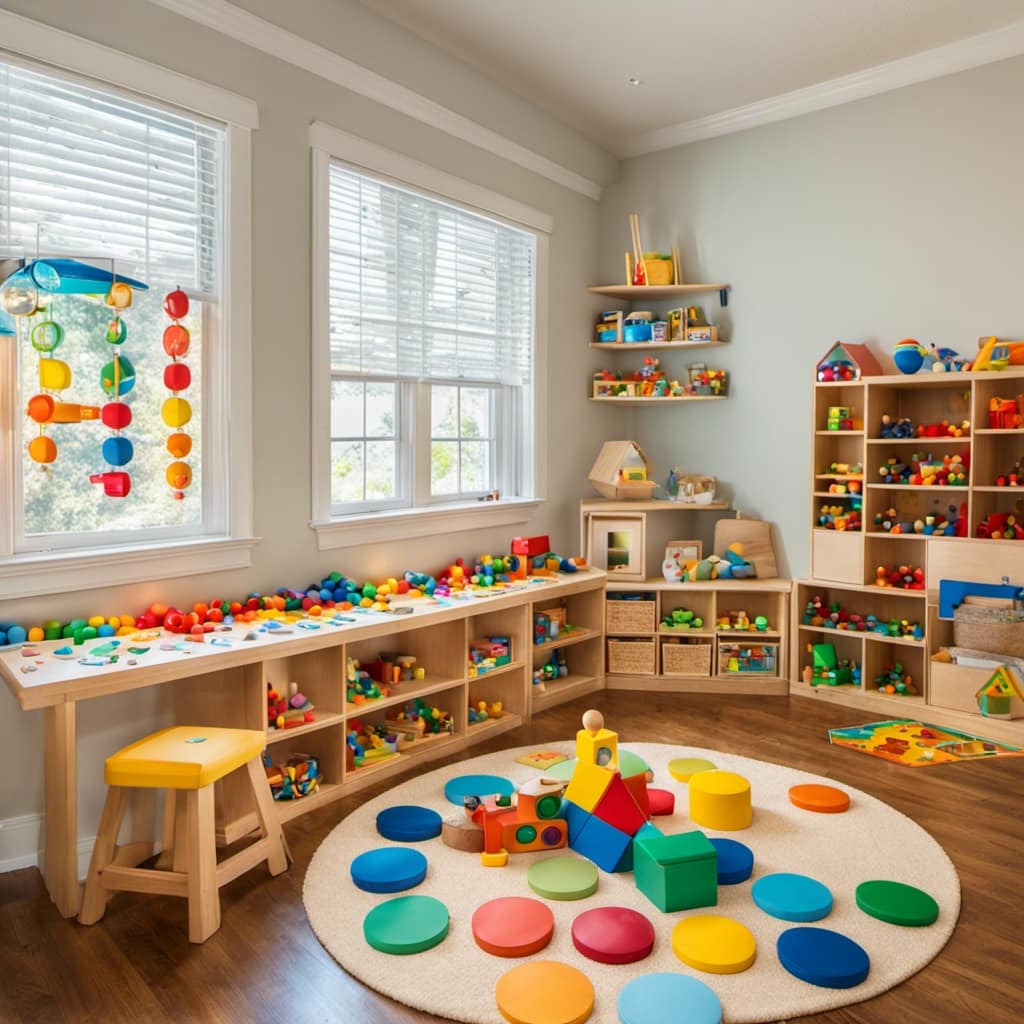
Hape offers a wide range of toys that cater to various age groups and developmental stages. From wooden puzzles and building blocks to musical instruments and pretend play sets, Hape toys provide endless opportunities for children to explore, learn, and grow.
What sets Hape apart is their dedication to using sustainable materials and non-toxic, child-safe finishes. Their toys are designed to withstand years of play, ensuring durability and longevity. Additionally, Hape toys encourage creativity, problem-solving skills, and imaginative play, fostering a well-rounded development in children.
With Hape’s innovative learning toys, children can have fun while acquiring essential skills and knowledge. By investing in Hape toys, parents can provide their children with the tools they need to thrive and succeed.
Grimm’s
Now let’s delve into Grimm’s, another quality producer of learning toys that complements Hape’s commitment to sustainability and child development.
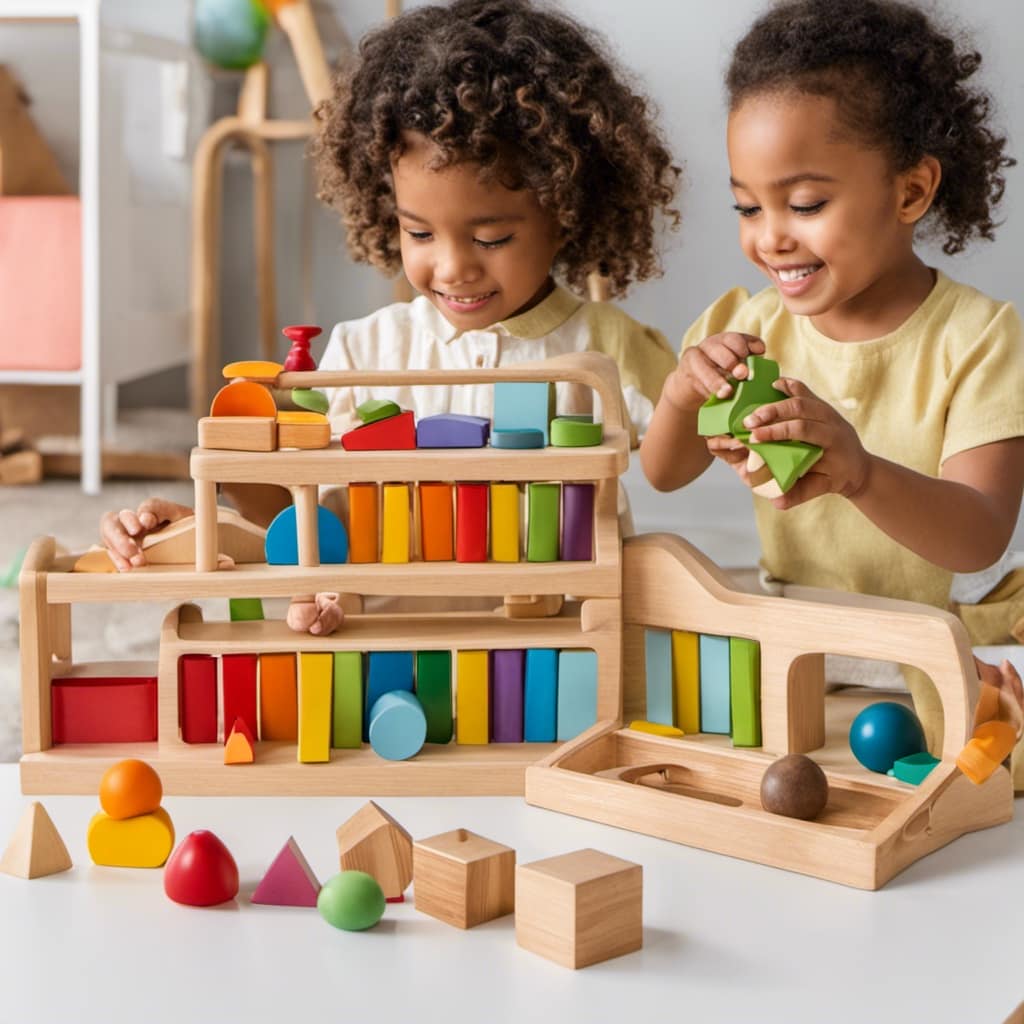
Grimm’s is renowned for their unique wooden toys that promote imaginative play and open-ended learning. Here are some key benefits of Grimm’s toys:
-
Encourages Creativity: Grimm’s toys are designed to inspire children’s creativity and imagination. With their vibrant colors and versatile shapes, children can explore endless possibilities and create their own stories and scenarios.
-
Enhances Problem-Solving Skills: The open-ended nature of Grimm’s toys encourages children to think critically and find solutions to different challenges. Whether it’s building structures or creating intricate patterns, children develop problem-solving skills while having fun.
-
Promotes Fine Motor Skills: Manipulating and arranging the various wooden pieces in Grimm’s toys helps children refine their fine motor skills. From stacking blocks to arranging puzzles, these toys provide hands-on experiences that strengthen hand-eye coordination and dexterity.

-
Sustainable and Eco-Friendly: Grimm’s is committed to sustainability and uses high-quality, natural materials such as wood and non-toxic paints. Their toys are ethically produced, ensuring a safe and eco-friendly playtime experience for children.
Grimm’s toys offer a world of possibilities for children, fostering their development while providing endless hours of engaging play.
Learning Resources
Learning Resources provides a wide range of educational toys and materials designed to enhance children’s learning experiences. Incorporating learning resources in early childhood education offers numerous benefits. These resources help children develop essential skills such as problem-solving, critical thinking, communication, and creativity. They also promote cognitive development, improve fine motor skills, and enhance hand-eye coordination. By engaging with learning toys, children are encouraged to explore, experiment, and discover new concepts independently.
Choosing the right learning toys for your child’s development is crucial. Consider their age, interests, and developmental stage. Look for toys that are age-appropriate and align with their learning goals. Consider toys that encourage imaginative play, promote sensory exploration, and offer hands-on learning experiences. Look for toys that are durable, safe, and made from high-quality materials.
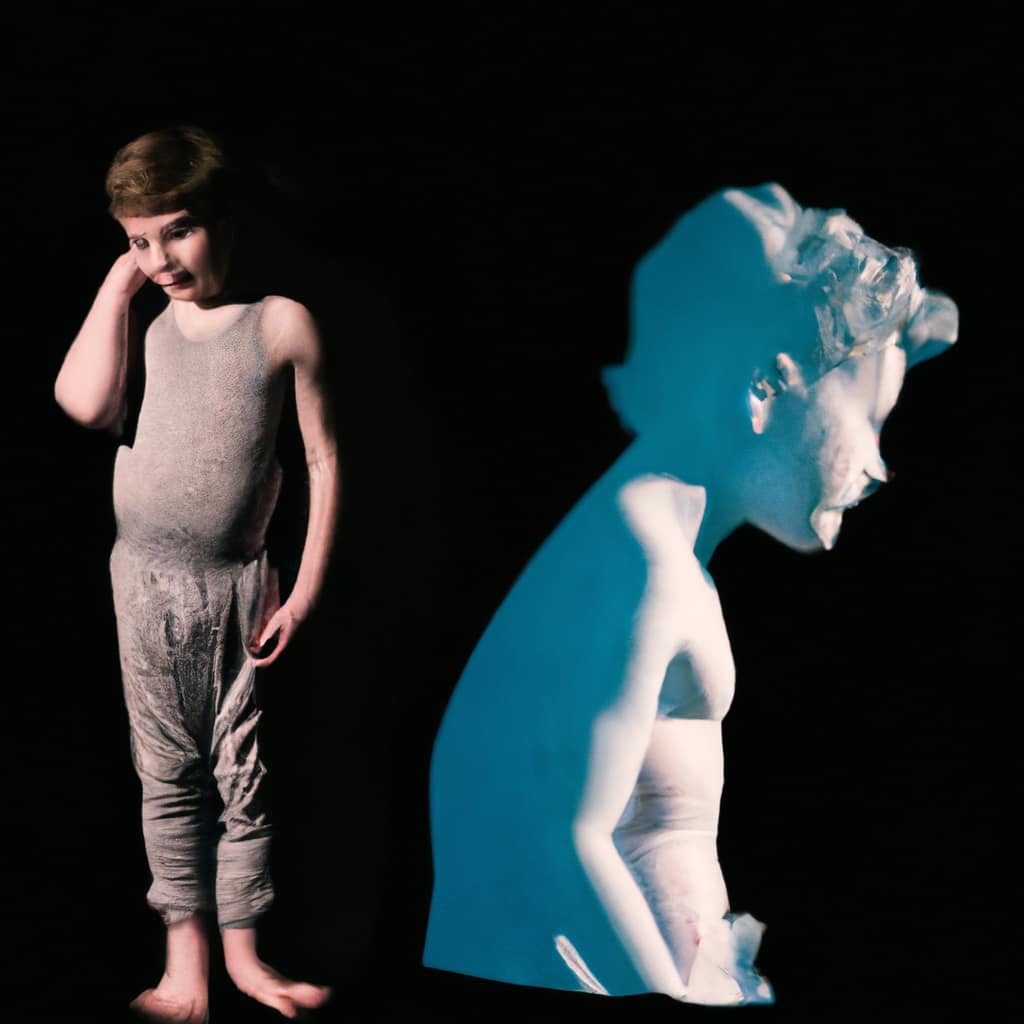
Additionally, involve your child in the decision-making process to foster their independence and encourage their engagement with the learning resources.
Frequently Asked Questions
What Are the Specific Age Ranges That Melissa & Doug’s Learning Toys Cater To?
Melissa & Doug’s learning toys cater to specific age ranges, offering advantages for each group. The toys are designed to promote cognitive development, fine motor skills, and creative thinking in toddlers, preschoolers, and elementary school children.
Are Plantoys’ Learning Toys Made From Sustainable Materials?
Yes, PlanToys’ learning toys are made from sustainable materials. Using eco-friendly materials in children’s toys not only benefits the environment but also teaches kids about sustainability and responsible consumption.
Does Hape Offer Any Educational Resources or Guides to Accompany Their Learning Toys?
Incorporating educational resources with learning toys has several benefits. Parents can utilize educational guides to enhance their child’s learning experience with Hape toys by providing additional information, activities, and guidance for interactive and educational play.
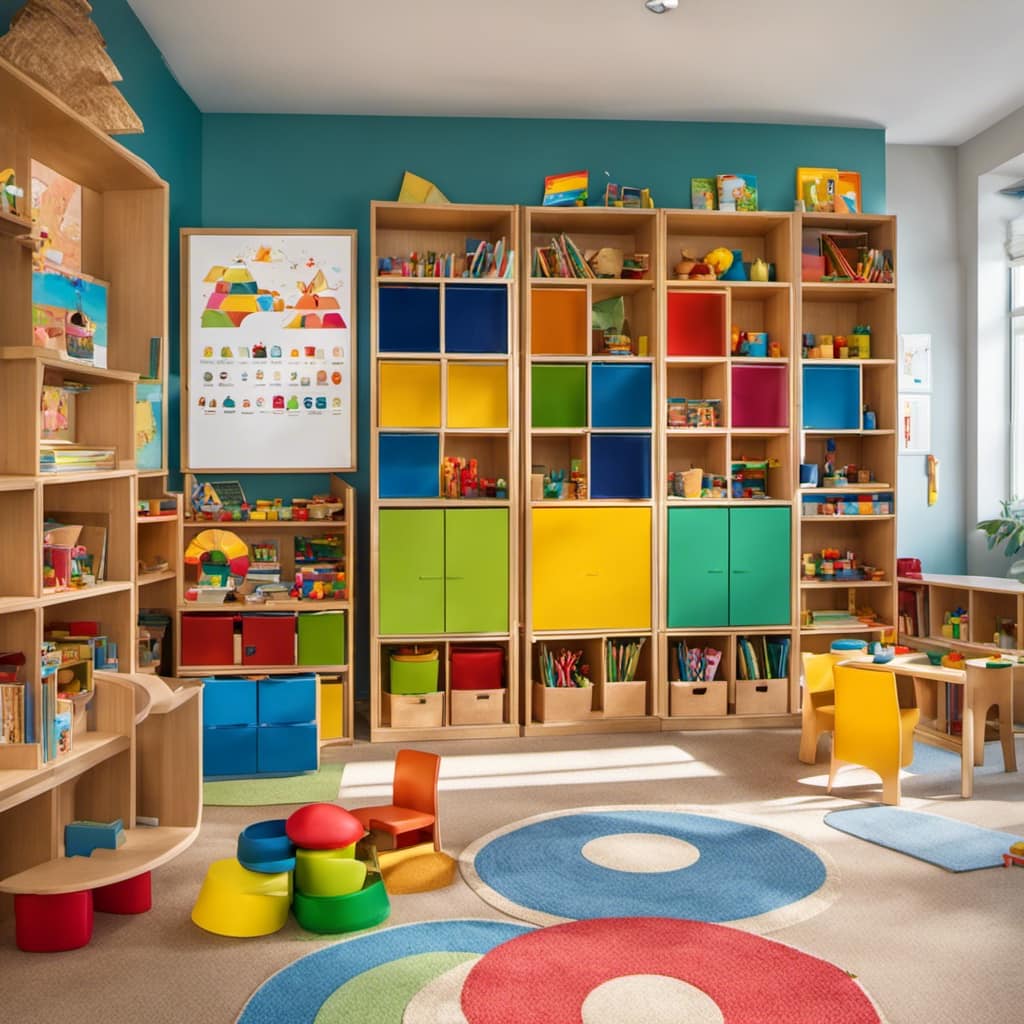
Are Grimm’s Learning Toys Suitable for Children With Special Needs?
Grimm’s learning toys for children with sensory needs can be adapted to suit different abilities. We can explore ways to modify the toys to provide a stimulating and inclusive learning experience for all children.
Can Learning Resources’ Learning Toys Be Used for Homeschooling Purposes?
Using learning toys for homeschooling has both pros and cons. They can enhance educational development by promoting active learning, but may also limit social interaction. Consider the impact on your child’s overall learning experience.
Conclusion
In conclusion, when it comes to quality producers of learning toys, Melissa & Doug, PlanToys, Hape, Grimm’s, and Learning Resources stand out for their commitment to creating educational and engaging products.
These brands offer a wide range of toys that promote cognitive development, creativity, and problem-solving skills in children. With their attention to detail, use of sustainable materials, and innovative designs, these companies have earned their reputation as leaders in the industry.
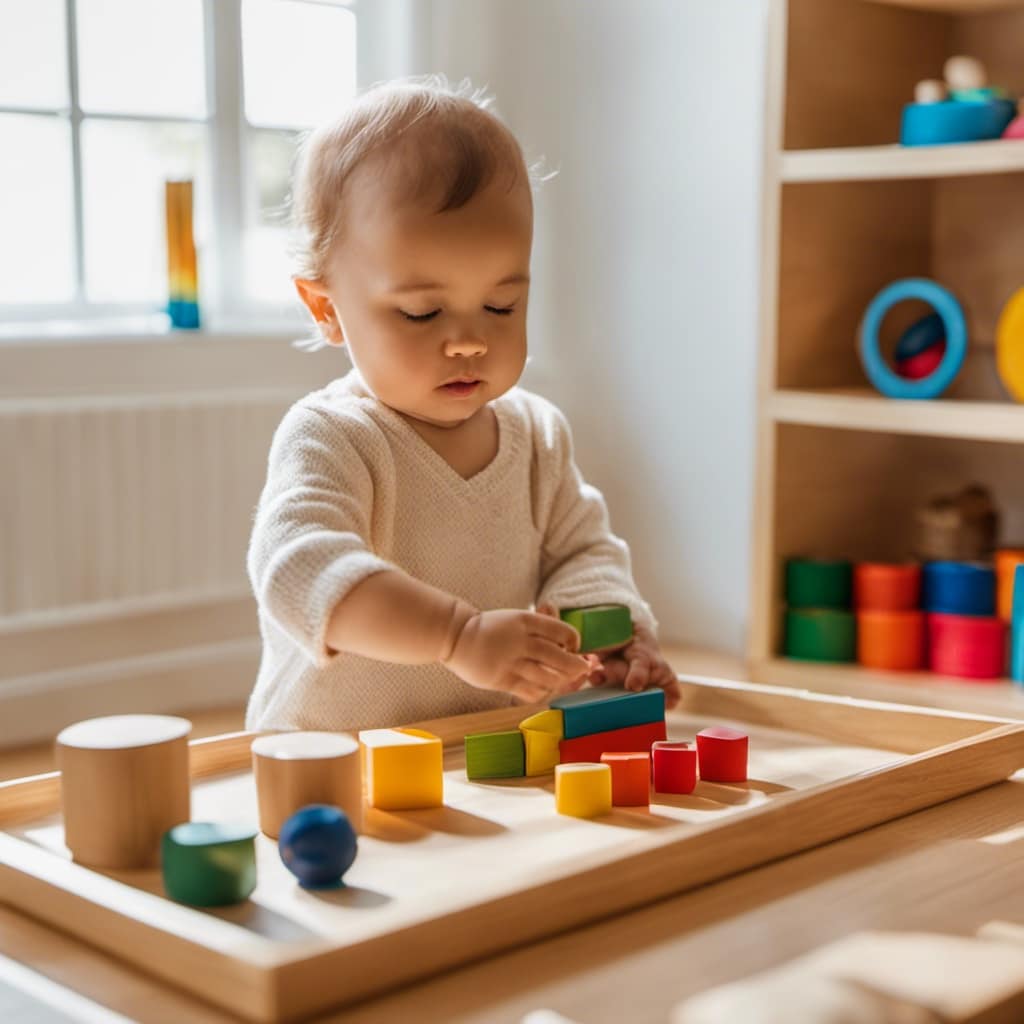
By investing in toys from these producers, parents can ensure that their children receive the best tools for learning and growth.
Mila, a gifted writer with a heart brimming with enthusiasm for child development and playful learning, is the creative force behind the enchanting narratives and insightful articles that grace Toddler Ride On Toys. With a background in early childhood education and a genuine passion for nurturing young minds, Mila weaves words that captivate, educate, and inspire parents, caregivers, and educators.
Montessori Toys
5 Best Economical Options for Kids’ Montessori Toys
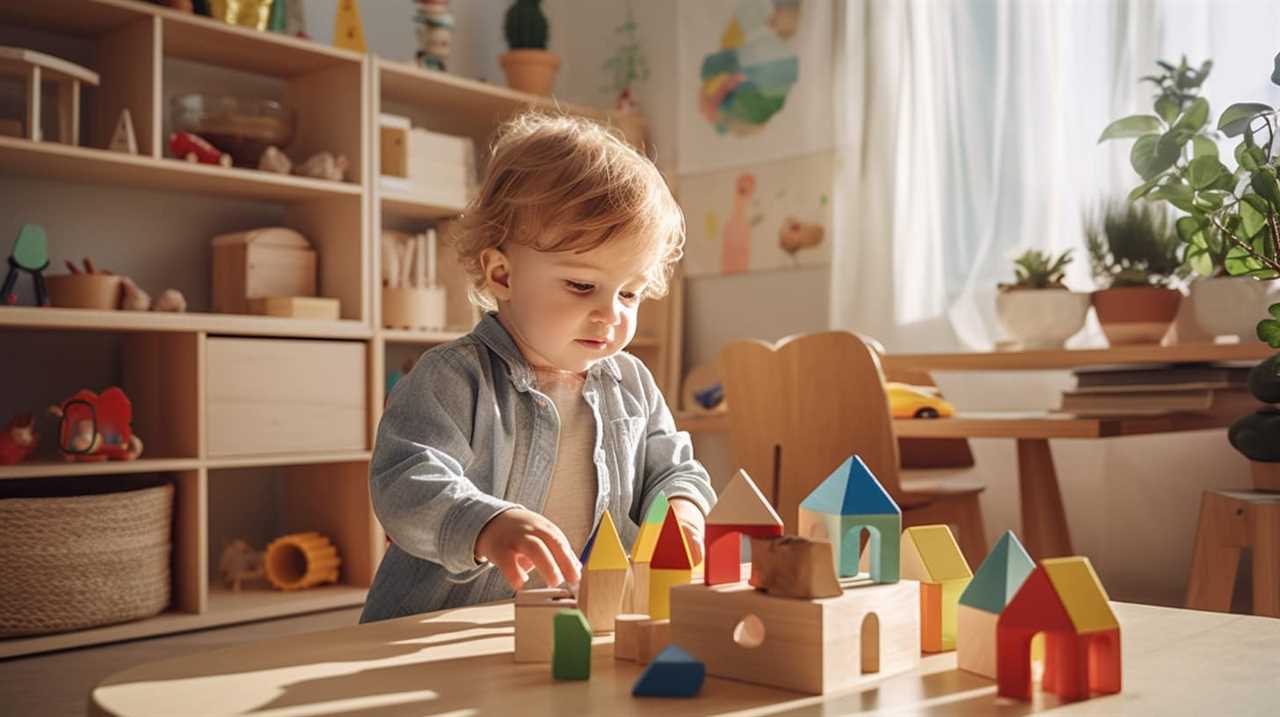
Finding affordable Montessori toys for kids can be a challenge. But fret not! We have put together a list of the top budget-friendly options just for you.
With our expert knowledge and research, we’ve found the top brands that won’t break the bank. Get ready to provide quality educational toys for your little ones without draining your wallet.
Let’s dive in and explore the five best economical options for kids’ Montessori toys.
Key Takeaways
- Materials used in construction, complexity of design, brand reputation, and quality and durability of materials are factors that affect Montessori toy costs.
- Lovevery, Hape, Melissa & Doug, and PlanToys are top affordable Montessori toy brands known for their quality and child-friendly designs.
- To find budget-friendly Montessori toys, consider open-ended toys, DIY options, budget-friendly subscription services, sales and discounts, and second-hand options from online marketplaces and thrift stores.
- Cost-effective DIY Montessori toy ideas include repurposing household items, finding items at thrift stores, DIY projects, and using nature-inspired toys and everyday household objects.
Factors Affecting Montessori Toy Costs
Factors that impact Montessori toy costs include materials, complexity, and brand reputation.
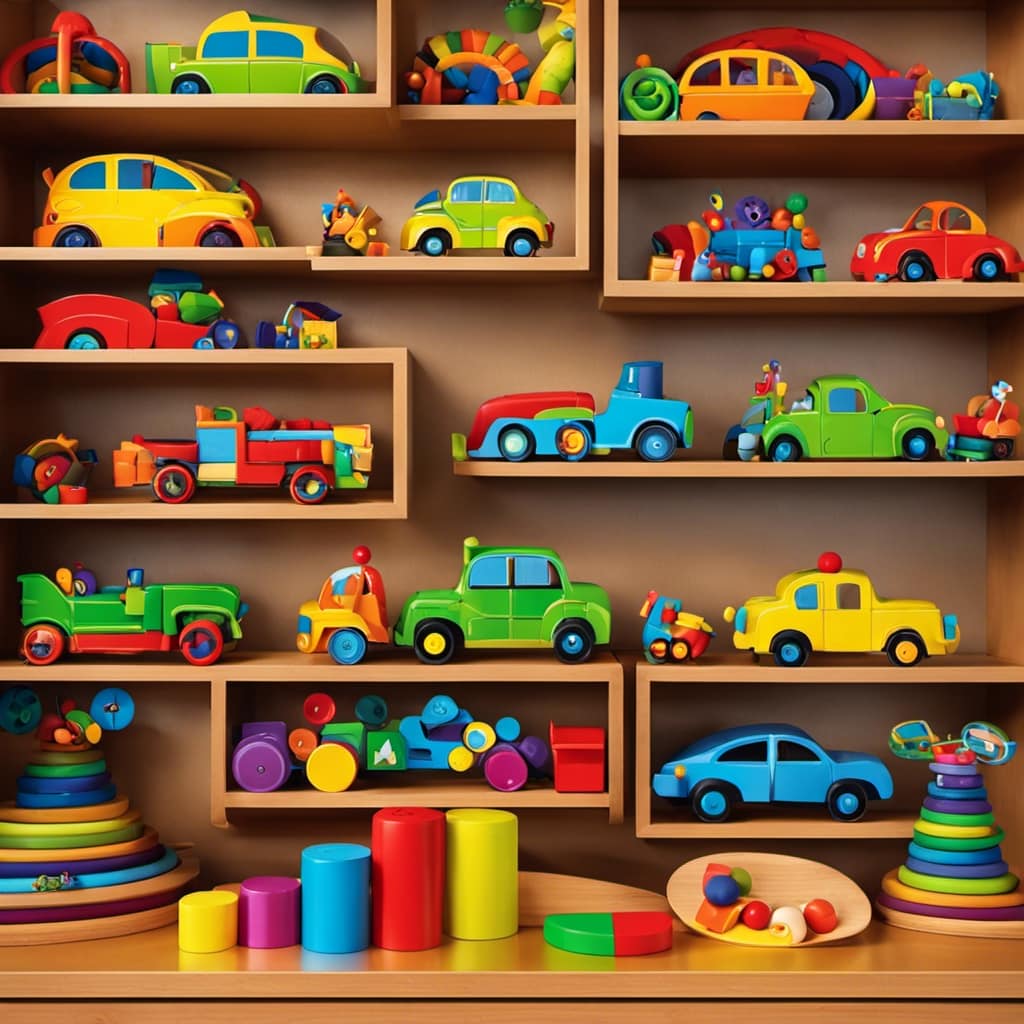
The quality of materials used in the construction of Montessori toys plays a significant role in determining their cost. High-quality materials, such as sustainably sourced wood or natural fabrics, tend to be more expensive, but they also ensure durability and safety for your child. On the other hand, cheaper materials may compromise the toy’s quality and longevity.
Brand reputation also influences Montessori toy prices. Well-established brands with a proven track record of producing high-quality educational toys are likely to charge more for their products. This is because they’ve invested in research and development, ensuring that their toys meet the educational standards of the Montessori method. However, there are also smaller, independent brands that offer affordable options without compromising on quality.
Understanding the impact of material quality and brand reputation on Montessori toy costs can help you make informed decisions when selecting toys for your child. By considering these factors, you can strike a balance between affordability and quality, ensuring that your child receives the best educational experience without breaking the bank.
Top Affordable Montessori Toy Brands
One of our favorite affordable Montessori toy brands is Lovevery. Lovevery offers Montessori inspired toy subscription services that deliver age-appropriate toys right to your doorstep. Their toys are designed to stimulate learning and promote development in children from birth to age four. Lovevery toys are crafted with high-quality materials and are designed to be durable, ensuring they can withstand the active play of young children.
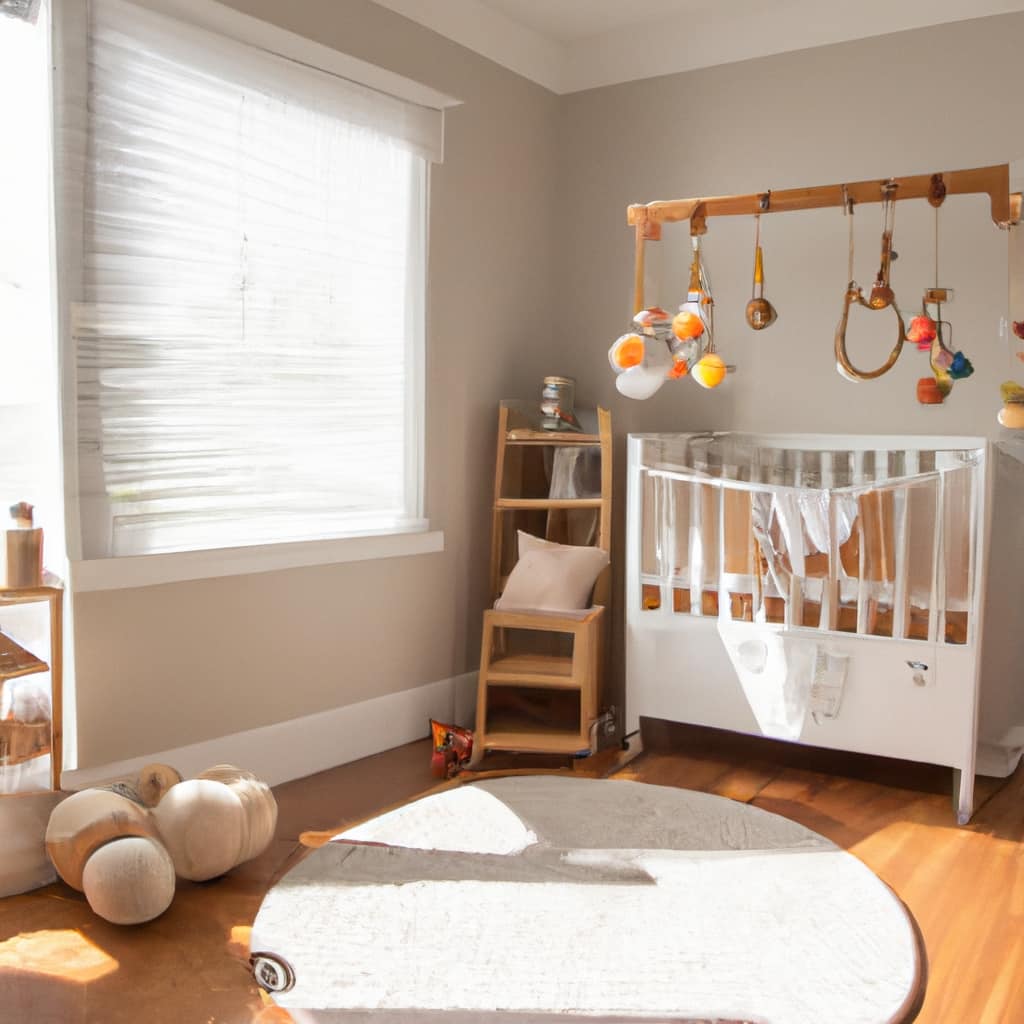
Another great option for affordable Montessori toys is to explore second-hand options. Websites such as eBay, Craigslist, and local buy/sell groups often have listings for gently used Montessori toys at a fraction of the original price. By opting for second-hand Montessori toys, you not only save money but also contribute to a sustainable and eco-friendly approach to toy shopping.
Budget-Friendly Montessori Toy Recommendations
After exploring affordable Montessori toy brands such as Lovevery and considering second-hand options, we can now discuss some budget-friendly recommendations for Montessori toys.
When it comes to affordable Montessori toy alternatives, there are a few options to consider. Firstly, you can opt for open-ended toys that can be used in multiple ways, such as wooden blocks or stacking rings. These toys promote creativity and problem-solving skills while being cost-effective.
Another budget-friendly option is to DIY Montessori-inspired toys using materials you already have at home. Repurposing everyday objects like empty containers or fabric scraps can make for engaging and educational toys.
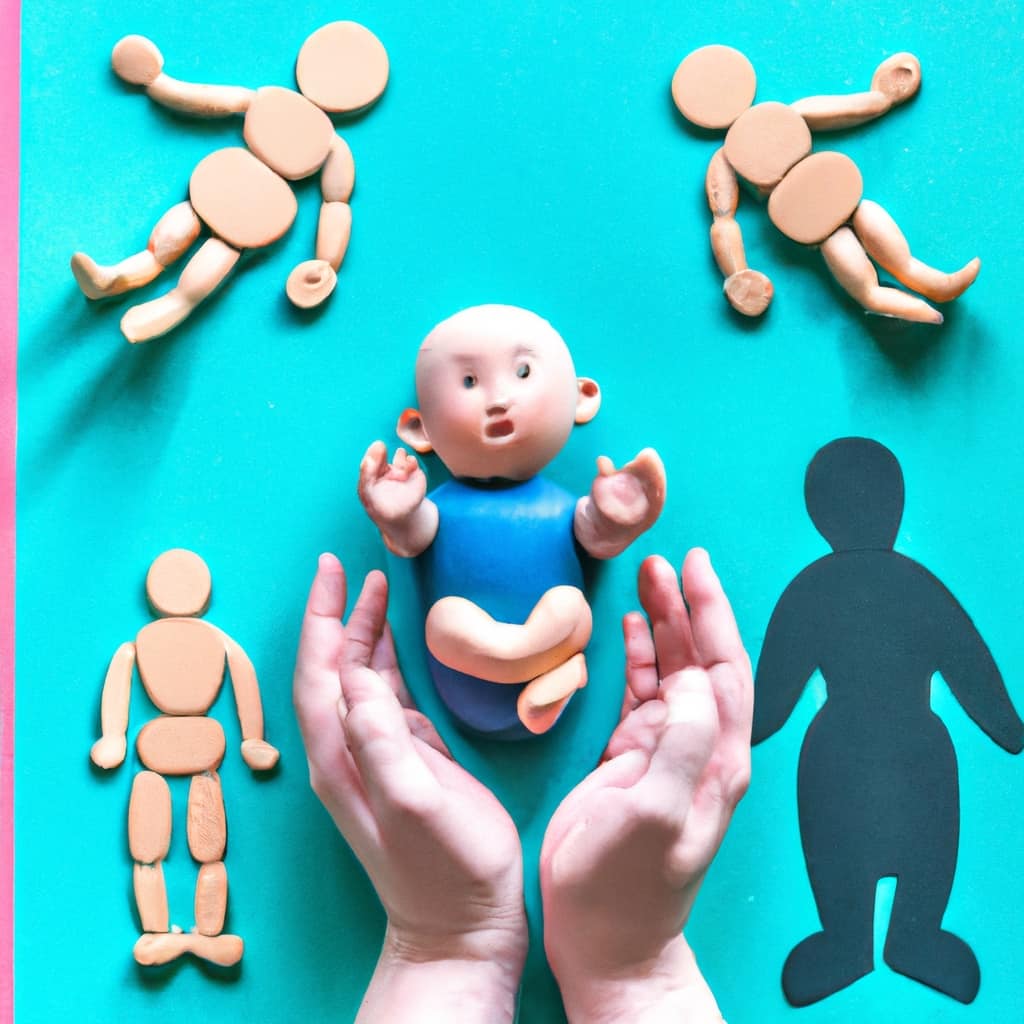
Additionally, some companies offer budget-friendly Montessori toy subscription services, which provide a variety of age-appropriate toys each month at a lower cost than purchasing individual toys. These subscription services allow your child to experience a range of Montessori-inspired activities without breaking the bank.
Tips for Finding Affordable Montessori Toys
To maximize our budget and find affordable Montessori toys, we can utilize effective strategies for sourcing cost-effective options. Here are three tips for finding affordable Montessori toys:
-
Secondhand Montessori toys: Consider purchasing gently used Montessori toys from online marketplaces, local thrift stores, or through local parent groups. Many families sell or donate their gently used toys, allowing you to save money while still providing your child with quality Montessori materials.
-
Sales and discounts on Montessori toys: Keep an eye out for sales and discounts on Montessori toys from various retailers. Sign up for newsletters or follow social media accounts of Montessori toy brands to stay updated on any promotions or special offers. This way, you can snag some great deals and save money on your purchases.
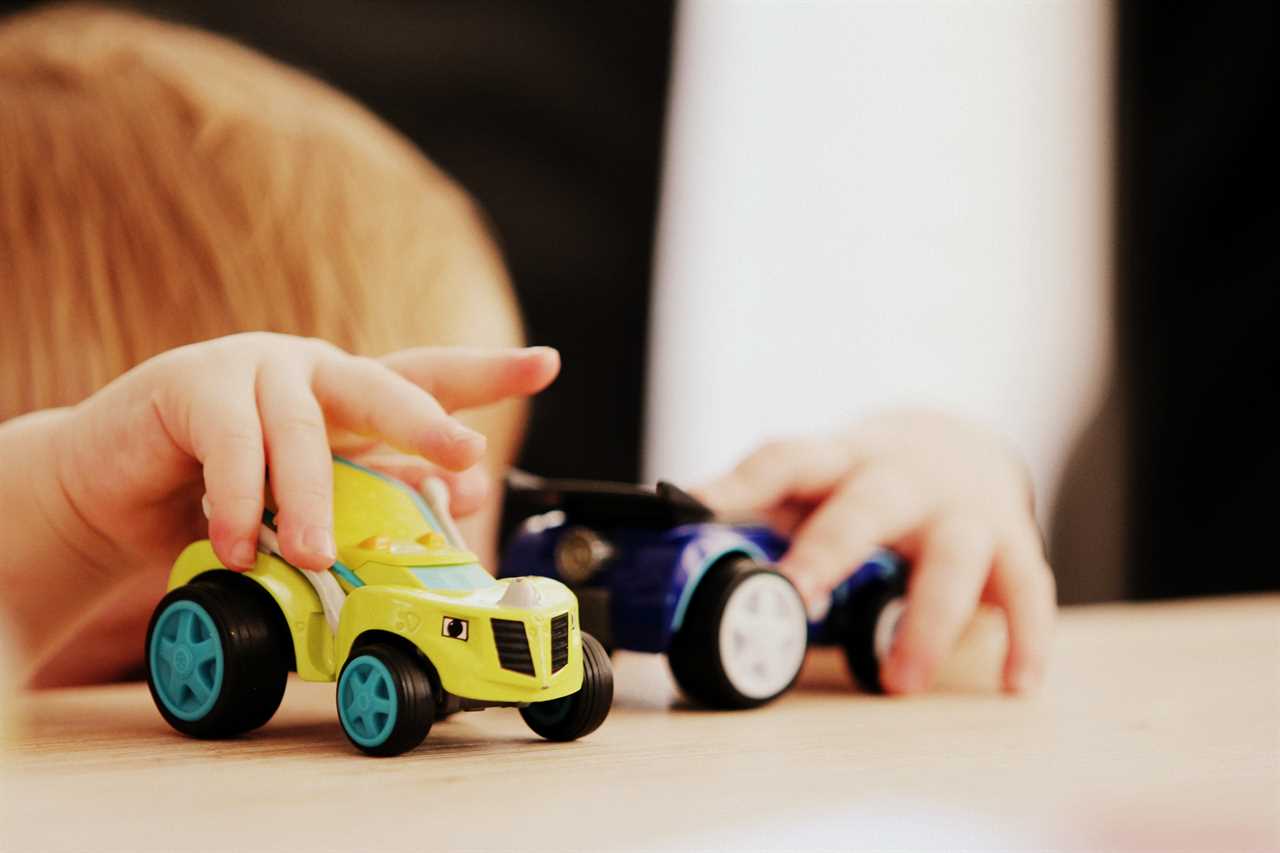
-
DIY Montessori toys: Get creative and make your own Montessori toys using materials you already have at home. There are plenty of DIY Montessori toy ideas available online that are budget-friendly and can be customized to suit your child’s interests and developmental needs.
Cost-Effective DIY Montessori Toy Ideas
Let’s explore some cost-effective DIY Montessori toy ideas that you can easily create at home.
One great option is to upcycle everyday items into Montessori toys. For example, you can turn old cardboard boxes into shape sorters or sensory bins by cutting out different holes and adding various textures.
Another idea is to repurpose empty containers and fill them with different objects, such as dried beans or buttons, for a DIY sound matching game.
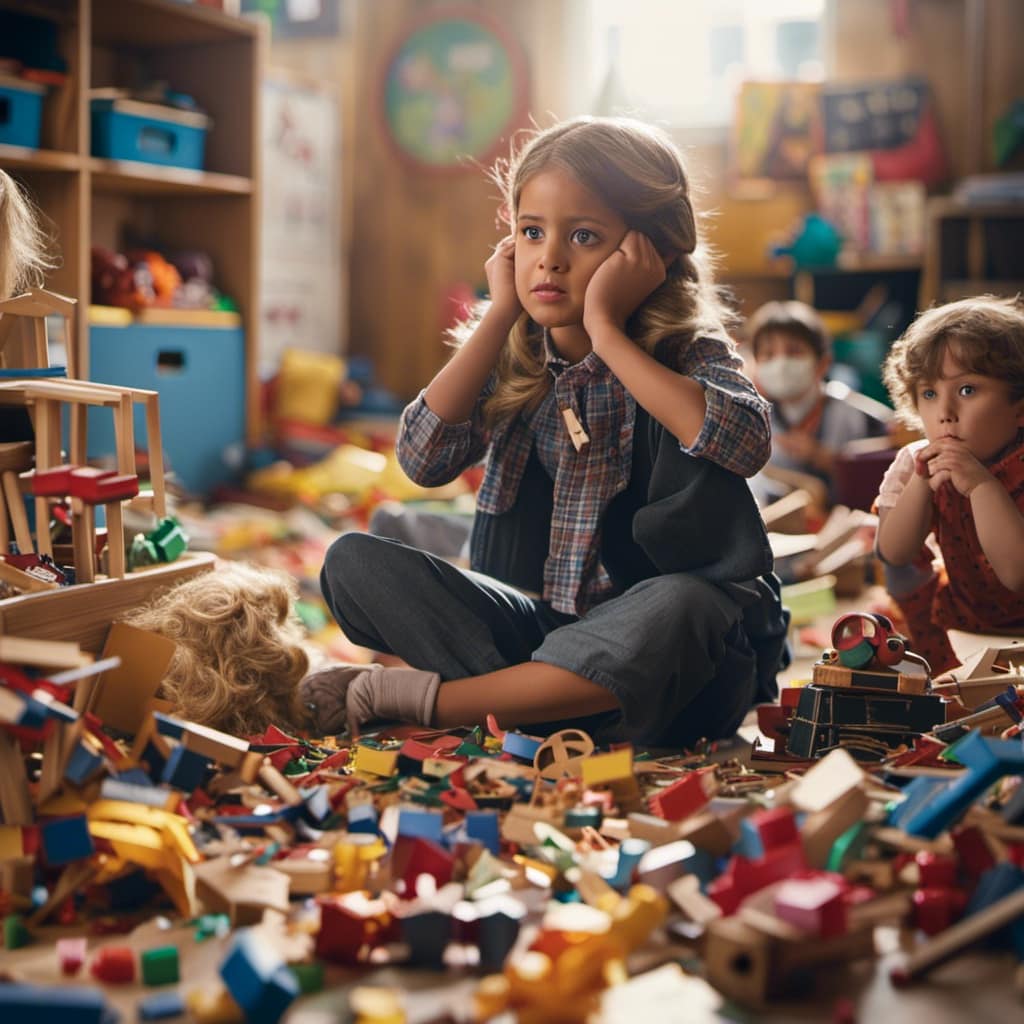
Thrift stores are also a great resource for finding affordable Montessori toys. Look for items like wooden puzzles, stacking toys, or small containers that can be used for sorting activities. With a little creativity and some paint, you can easily transform these thrift store finds into Montessori-inspired toys.
By using upcycled materials and shopping at thrift stores, you can create a variety of Montessori toys without breaking the bank. These DIY projects not only save you money but also promote sustainability and encourage resourcefulness.
Frequently Asked Questions
Are Montessori Toys Only Suitable for Young Children or Can Older Kids Benefit From Them as Well?
Montessori toys are not limited to young children; older kids can also benefit from them. Montessori toys offer unique benefits such as promoting independence and critical thinking, which traditional toys may not provide.
How Long Do Montessori Toys Typically Last Before Needing to Be Replaced?
Montessori toys can last a long time, but their lifespan depends on various factors like quality, materials, and how they are used. It’s important to choose durable toys that can withstand repeated play.
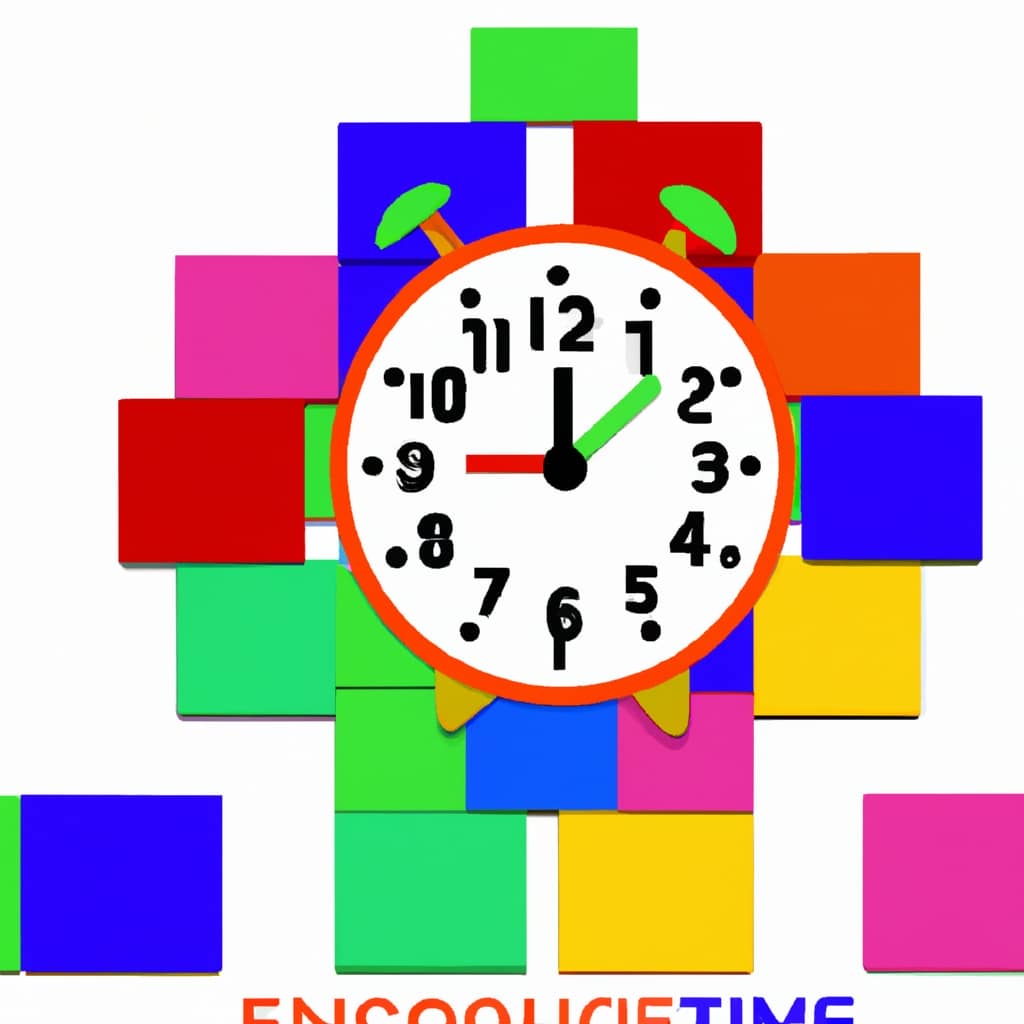
Can Montessori Toys Be Used in a Traditional Classroom Setting or Are They Only for Home Use?
Montessori toys can be used in a traditional classroom setting, not just at home. They offer numerous benefits for older kids, such as fostering independence, promoting problem-solving skills, and encouraging hands-on learning.
Are There Any Safety Concerns to Consider When Using Montessori Toys?
When it comes to Montessori toys, safety concerns are important to consider. However, the benefits for older kids are worth it. Let’s explore how to ensure a safe and enriching play environment.
What Are Some Alternatives to Montessori Toys That Offer Similar Educational Benefits at a Lower Cost?
Looking for budget-friendly alternatives for Montessori toys? Consider DIY Montessori-inspired toys. They offer similar educational benefits at a lower cost. Get creative and engage your little ones in cost-conscious educational play!
Conclusion
In conclusion, finding affordable Montessori toys doesn’t have to be a daunting task. By considering factors that affect costs, exploring budget-friendly brands, and utilizing cost-effective DIY ideas, parents can provide their children with enriching educational toys without breaking the bank.
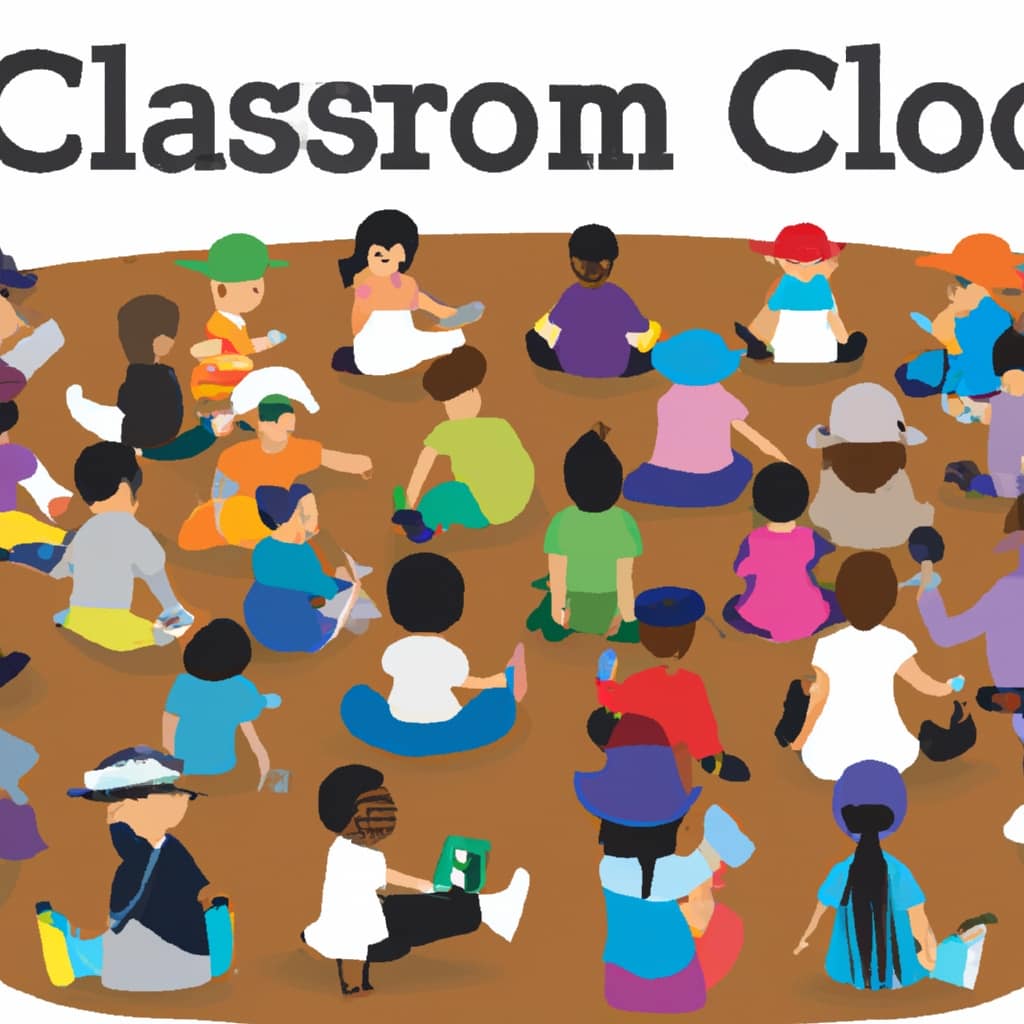
Remember, with a little creativity and resourcefulness, it’s possible to find the perfect Montessori toys that are both economical and engaging. So start your search today and watch your child’s learning journey flourish!
Mila, a gifted writer with a heart brimming with enthusiasm for child development and playful learning, is the creative force behind the enchanting narratives and insightful articles that grace Toddler Ride On Toys. With a background in early childhood education and a genuine passion for nurturing young minds, Mila weaves words that captivate, educate, and inspire parents, caregivers, and educators.
-

 Child Development3 months ago
Child Development3 months agoWhat Is a Theory in Child Development
-

 Child Development3 months ago
Child Development3 months agoThe Science Behind How Parents Affect Child Development
-

 Child Development3 months ago
Child Development3 months agoWhat Do You Do in Child Development Class in High School
-

 Child Development3 months ago
Child Development3 months agoHow Parenting Styles Affect Child Development
-

 Child Development3 months ago
Child Development3 months agoWhat Is Child Development?
-

 Child Development3 months ago
Child Development3 months agoHow Does Piaget’s Theory Impact Child Development
-

 Preschool Toys6 months ago
Preschool Toys6 months agoTop 8 Interactive Role-Play Toys for Preschoolers Reviewed
-
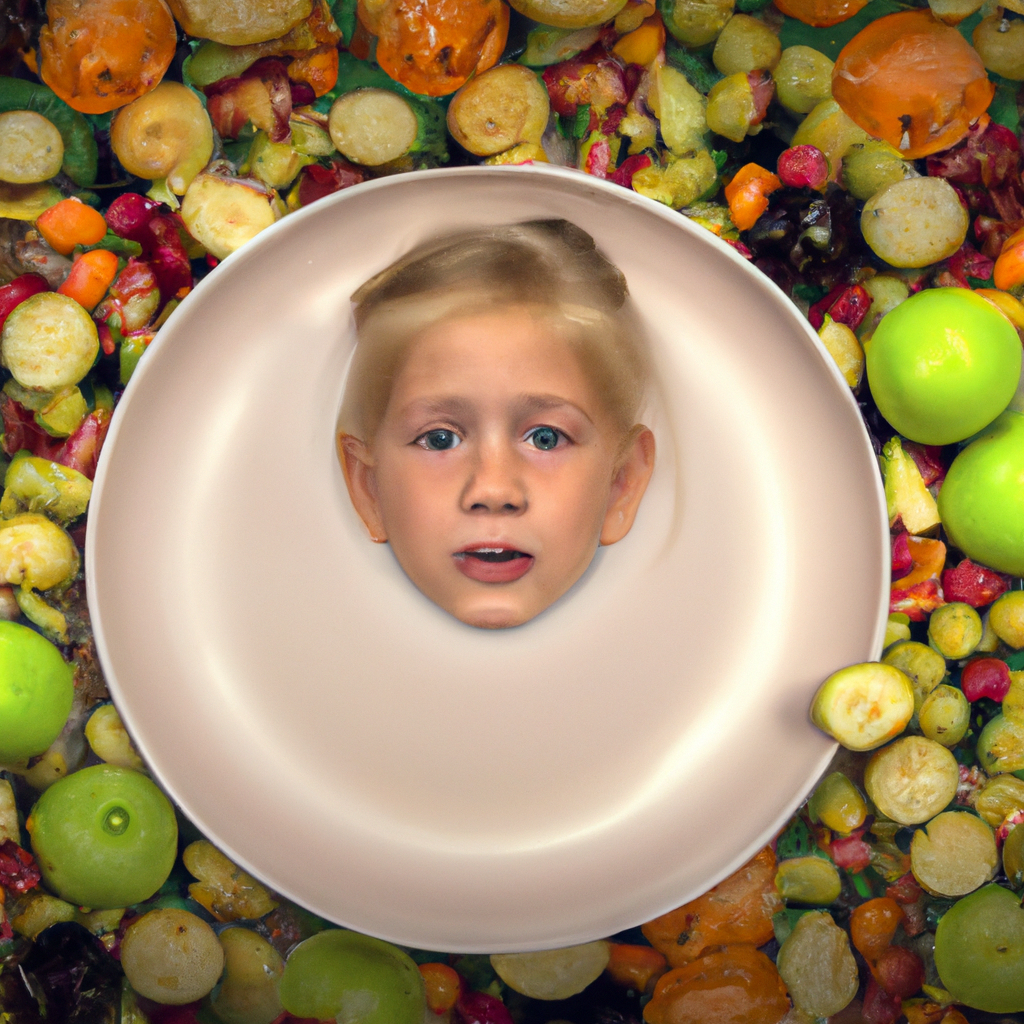
 Child Development3 months ago
Child Development3 months agoHow Does Food Insecurity Affect Child Development











